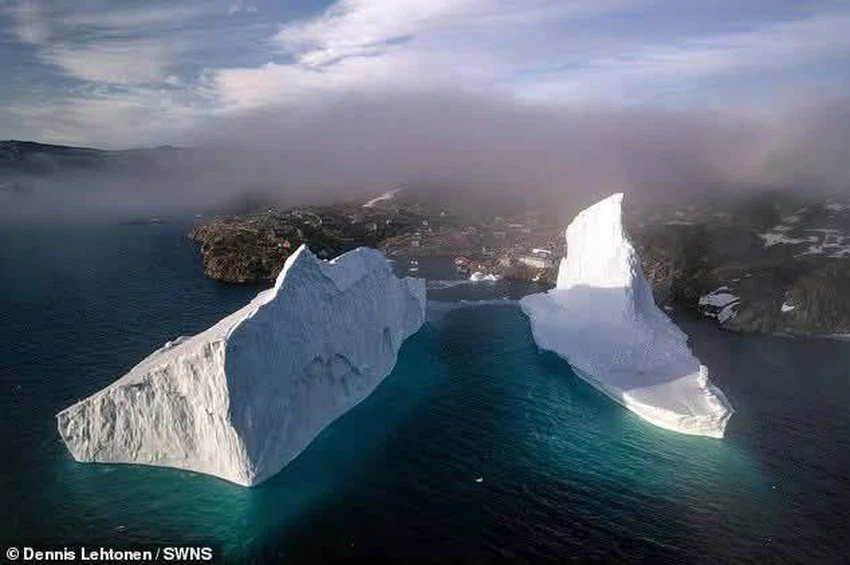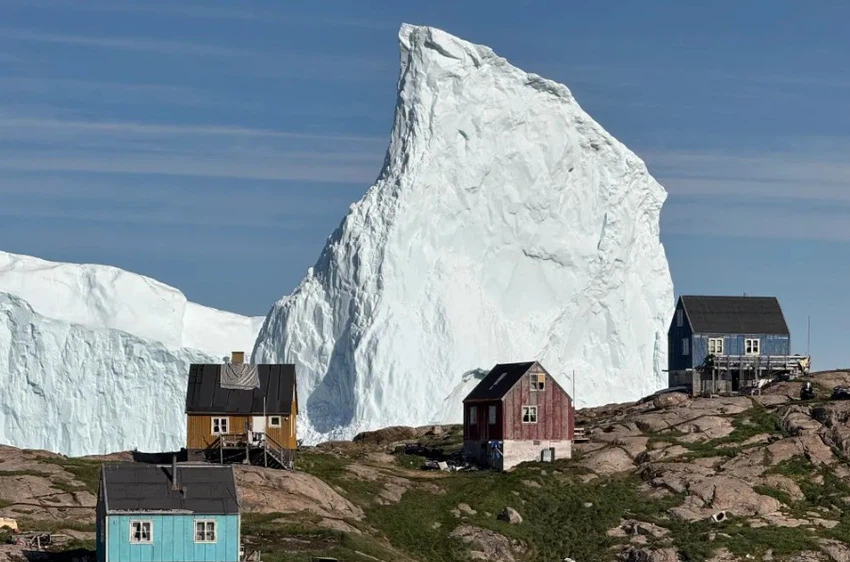See pictures of a huge iceberg breaking away and drifting towards a village in Greenland as a result of accelerated melting due to global warming.
Arab Weather - The repercussions of global warming, caused by climate change, are worsening. Polar regions are experiencing unprecedented rates of continuous ice melting, leading to an increase in the rate of glacier calving and the release of massive ice masses into the oceans.
Arab Weather experts said that this phenomenon may directly contribute to the increase in the size of moving icebergs, which multiply annually as a result of the decline in permanent snow and the decrease in the hardness of sea ice. This poses a risk of rising sea levels, especially in coastal areas, and rising waves due to melting ice. This may pose a risk of either submerging parts of coastal cities or of these icebergs colliding with land.
A very large iceberg drifted in Greenland
Around July 9, 2025, a very large iceberg drifted near the coast of the settlement of Inarsuit, located in northwest Greenland, in Baffin Bay. The iceberg anchored near the village's port, raising concerns that parts of it might break off and create large waves that would pose a danger to infrastructure and residents. See the photos.


Concerns are growing about the continued melting of ice and the calving of icebergs due to global warming. This could deepen and complicate the polar water cycle, with accelerated evaporation and condensation rates and shifts in the distribution of water masses. This will reinforce dynamic changes in the polar ecosystem and serve as a vital indicator of the severity of the effects of climate change on a global scale.
Arabia Weather App
Download the app to receive weather notifications and more..



